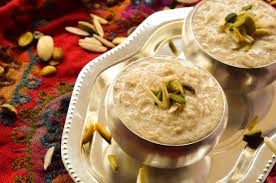![]()
11th Safar 1438 AH ~ Friday 11th November 2016
By Hadrat Mawlānā Muhammad Saleem Dhorat hafizahullāh
If we study the lives of the pious servants of Allāh ta‘ālā, i.e. the Ambiyā, Sahābahradhiyallāhu ‘anhum, the Muhaddithūn, Fuqahā, Awliyā, we will find one common factor in their lives, and that is their concern for securing Husn Al-Khātimah so that they are successful in the Court of Allāh ta‘ālā. Despite their lives being full of virtue, they would worry and pray for death in the state of īmān and Islām.
Allāh ta‘ālā quotes the du‘ā of Yūsuf ‘alayhis salām in the Glorious Qur’ān:
…O Creator of the heavens and the Earth, You are my guardian in this world and the Hereafter. Make me die a Muslim and make me join the righteous. (12:102)
This is because a single word of disbelief at the time of death can erase the benefits of a lifetime of virtue and obedience. On the other hand, a person may live a life of sin and vice, and then be granted the blessing of īmān in the final moments of his life, thereby securing the success of both this world and the Hereafter. Through His infinite Grace and Mercy, Allāhta‘ālā inspired me with six points, which will secure Husn Al-Khātimah and a good death for ourselves, which in turn will result in a good outcome in the Hereafter, Inshā’allāh.
1. Adopt Taqwā (fear of Allāh ta‘ālā). Taqwā holds the power to repel all the forces which weaken one’s īmān and at times snatch it away. This can be understood from the verses wherein Allāh commands the believers to adopt Taqwā. We understand from them that once a person becomes a believer, the method of safeguarding that belief is adopting Taqwā. And Taqwā simply means to create a barrier between disobedience to Allāh and ourselves. Another name for this Taqwā is Istiqāmah (steadfastness), because when a person, after accepting īmān, remains steadfast upon the Commands of Allāh, he will not disobey Him. Allāh ta‘ālā mentions:
Surely, those who have declared: ‘Our Lord is Allāh’, then remained steadfast, on them the angels will descend, saying, ‘Do not fear, and do not grieve; and be happy with the good news of Jannah (Paradise) that you had been promised. We have been your friends in the worldly life, and (will remain as such) in the Hereafter. And for you here is whatever your souls desire, and for you here is whatever you call for.’ (41:30)
So when one accepts īmān by saying, “My Lord is Allāh”, and thereafter safeguards this īmān by remaining steadfast in carrying out the Commands of Allāh and staying away from every disobedience, then Allāh will reward him with a good death, as is indicated in the verse above, that the angels will descend with special mercy at the time of his death. The commentators of the Qur’ān have mentioned that the angels of mercy are always with those who are steadfast on Dīn; however, the special indication given in this verse is that at the time of their death, the angels become visible to them, who give them the glad tidings of Jannah from their Lord.
2. Love the pious and spend time in their company. The pious people are the people of Taqwā. The effect of loving them will create in one the desire to spend time in their company, and in doing so the effect of their taqwā will rub onto one’s self. Allāh ta‘ālāmentions:
O you who believe, adopt taqwā, and be in the company of the truthful. (9:119)
We need to firstly accept īmān, which alhamdulillāh we all do, and thereafter safeguard our īmān by adopting Taqwā, which can be acquired by staying in the company of those who already have it. The term ‘The Truthful’ used here is another name for those who have Taqwā, as mentioned in another place in the Qur’ān:
…Those are the ones who are truthful, and those are the God-fearing. (2:177)
Similarly the Prophet sallallāhu ‘alayhi wasallam states in a hadīth:
On the Day of Judgement, a person will be with whom he loved. (At-Tirmidhī)
If a person entertains love for the pious, he will be with them in the Hereafter, and the pious people will be granted entry into Jannah, for which īmān is a prerequisite. Thus, we can deduce that such a person will die in the state of īmān.
3. Giving in charity. Spending in the path of Allāh ta‘ālā cools the Anger of Allāh. If Allāhta‘ālā is angry with a person, what chance is there for him to have a good death? Therefore, charity paves the way for one to die in the state of īmān, as indicated by the Prophetsallallāhu ‘alayhi wasallam:
Sadaqah (charity) extinguishes the anger of the Lord and prevents an unpleasant death. (At-Tirmidhī)
An unpleasant death could either mean death without īmān or death in an undesirable state, i.e. as a victim of a tsunami, hurricane, or earthquake. Inshā’allāh, a person will be saved from both types of death.
4. Carrying out acts upon which the intercession of the Prophet sallallāhu ‘alayhi wasallamis guaranteed. In various narrations, the Prophet sallallāhu ‘alayhi wasallam has encouraged carrying out certain good acts, the virtue of which is that the intercession of the Prophetsallallāhu ‘alayhi wasallam will become incumbent for the doer. One should inquire about and learn such acts from reliable, authentic sources and act upon them. The intercession of the Prophet sallallāhu ‘alayhi wasallam is of two types. The first being that on the Day of Judgement, when every human will be gathered in the Plain of Resurrection, every soul will be in a state of extreme worry and fear regarding its fate in the court of Allāh ta‘ālā. At this tense moment, the Prophet sallallāhu ‘alayhi wasallam will intercede on behalf of the whole humankind and request Allāh ta‘ālā to begin the reckoning. The reckoning will thus begin, and this is known as the ‘general intercession’. Thereafter, once the process of reckoning begins, the Prophet sallallāhu ‘alayhi wasallam will specifically intercede on behalf of many individuals of his ummah, with the permission of Allāh. Only a person who dies in the state of īmān will be worthy of receiving this ‘special intercession’ of the Prophet sallallāhu ‘alayhi wasallam. The glad tidings of intercession upon various good actions is this ‘special intercession’ which is exclusively for people with īmān. It can be therefore understood that those carrying out these good acts will die with īmān, as only they will be worthy of this ‘special intercession’. One example of such an act is reciting the du‘ā after the adhān.
5. Repeatedly thank Allāh ta‘ālā for the great bounty of īmān, for Allāh ta‘ālā promises:
If you express gratitude, I shall certainly give you more. (14:7)
It should be kept in mind that gratitude should be expressed in 3 ways:
- By acknowledging and contemplating over this great bounty in one’s heart and mind that Allāh has granted this to me through His Grace only without my deserving it.
- By verbally expressing one’s gratitude.
- By fulfilling the Commands of Allāh in regards to this bounty.
If we acknowledge the bounty of īmān with our heart and mind, express praise for Allāh verbally and carry out the demands of this ni‘mah (blessing), i.e. adopt Taqwā, then Allāh will increase this ni‘mah of ours inshā’allāh.
6. Make du‘ā for a good death and for a pleasant abode in the Hereafter. You may do this in your own words or by using supplications from the Qur’ān and ahādīth, for example:
O Allāh, forgive our living and our dead, those present from among us and those absent, our young and our old, our males and our females, O Allāh whoever you keep alive from among us, keep him alive on Islām, and whoever you give death to, give him death upon īmān. (Ahmad)
Allāh ta‘ālā mentions the supplication of the knowledgeable people: “Our Lord, do not let our hearts deviate from the right path after You have given us guidance, and bestow upon us mercy from your own.” (2:8)
If we strive to do the above and ask Allāh ta‘ālā sincerely, then inshā’allāh, He will grant us this great bounty of death in the state of īmān.
May Allāh ta‘ālā grant us the true understanding of the reality of the Hereafter and grant us the tawfīq to adequately prepare for it. Āmīn.
© Riyādul Jannah (Vol. 21 No. 2, Feb 2012)
• Please forward this message on to all your contacts






